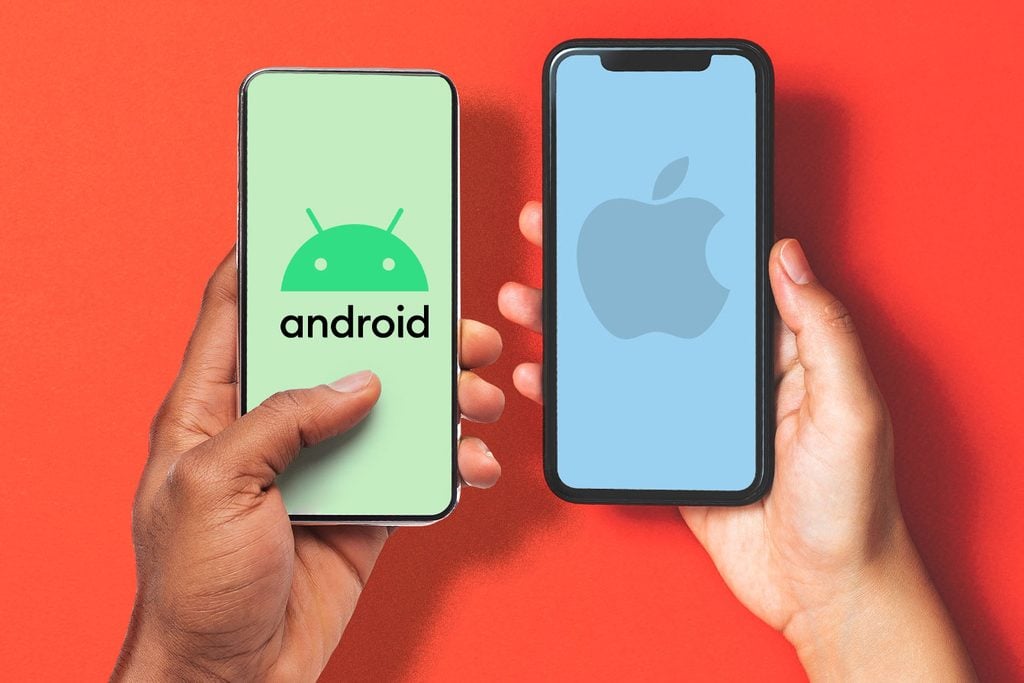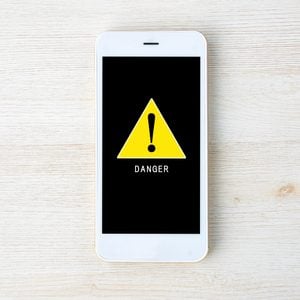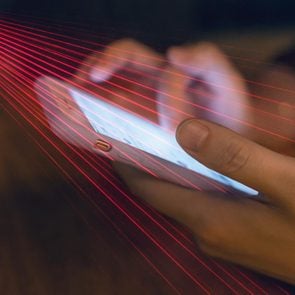Which Phone Is Most Secure?
Updated: Jan. 25, 2023

When shopping for a new mobile device, phone security should be top of mind. These are the security features to consider when choosing between an iPhone vs. Android.
With cyberattacks rising, it’s time to double down on phone security. Users’ first and most obvious line of defense against hackers is choosing the most secure phone on the market. But which mobile operating system offers the most protection: iOS vs. Android?
iPhones are hacked much less frequently than Androids, according to senior director Randy Pargman’s team at Binary Defense, a cybersecurity company. Factors such as automatic software updates, the cost of hacking iPhones, and limits on users’ customization options make iPhones the more secure choice.
Top security threats of smartphones
iPhone and Android users alike can rest assured that “both iPhone and Android devices can be maintained in a reasonably secure way,” Pargman says. It’s the choices that you make—from the apps you install to the networks you connect to—that can ultimately make or break your phone’s security. Check out more of the top security threats of smartphones.
That said, when it comes to security, there are several pros and cons to weigh between iPhone and Android devices. Consider these security features carefully before making your pick.
Factors to consider for iPhones
By controlling certain features such as software updates, apps and permissions, and malware, Apple protects its users from accidentally leaving their phones vulnerable to cyberattacks. “Apple makes it easier for its customers to keep their iPhones secure by taking away many of the potentially risky choices, and that’s why fewer iPhones are compromised,” Pargman says.
Software and security updates
One big perk of owning an iPhone is how quickly software and security updates are installed on users’ devices after being released, according to Pargman. “Since Apple controls the entire infrastructure, they can push updates directly to all supported iPhones and protect them from exploitation quickly,” he says. Updating your phone with the latest software is one of the most important ways to protect your phone from viruses.
Apps and permissions
iPhone owners can only install apps from the App Store, and Apple is strict about which apps are allowed to begin with. These rules allow Apple to review and block malicious apps before they are downloaded. If a few malicious apps do make it through the company’s firewall, they won’t last long; Apple has the ability to remove apps from iPhones even after they have been installed, Pargman says. This is why you should be worried about smartphone apps stealing your data.
Viruses and malware
Pargman’s team at Binary Defense, which monitors the markets where malware and stolen data are bought and sold, has found that malware for iPhones is much less common than for Androids. “We see many advertisements for Android malware, but very rarely any mention of hacking tools that target iPhones,” Pargman says. While options for hacking iPhones still exist, he notes, “those tools are rare and much more expensive.”
Factors to consider for Androids
Android devices offer more customization options than iPhones, but that could come at the expense of safety, Pargman says. Android phones are targeted by cybercriminals more often due to several factors, including the delay of security updates, higher number of malicious apps, and lower cost of hacking tools.
Software and security updates
Like Apple, Google can automatically install software and security updates for its Pixel line of phones. But other phone manufacturers must adapt Google’s updates for their customized Android devices, which can take much longer, according to Pargman. What’s more, some Android models stop receiving updates after only two or three years, which can leave the phones unprotected if users do not purchase a new model. Here are more warning signs it’s time for a new phone.
Apps and permissions
Although Google works hard to keep malicious apps off of the Google Play store, “malware still regularly appears, and some third-party app stores are riddled with malware,” Pargman says. And if users accidentally download a malicious app, Google cannot uninstall apps from customers’ phones the same way that Apple can. Whether you use an iPhone or Android, delete these apps that security experts would never have on their phones.
Viruses and malware
Google has made significant improvements to its security features in recent years, according to Pargman. But it is still more common to see malware for Androids than iPhones, especially if the hackers aren’t professionals. “For the average person who is more concerned about criminals trying to steal money from their bank account rather than shadowy spy agencies, iPhones are targeted much less frequently than Android,” Pargman says.
Which is better: iPhone or Android?
While both iOS and Android operating systems can be secure options, the features offered by iOS can keep your data more secure overall. What Apple users lack in choices they often gain in additional security, from automatically installing security updates, to deleting malicious apps, to deterring hackers. Androids, by comparison, offer more lenient security measures that can sometimes leave phones vulnerable. Next, learn how to make your phone impossible to track and keep your information safe.
How to safeguard your phone
You should still take steps to improve your phone security—no matter which device you have. “No phone is impossible to hack, and all systems have weaknesses as a result of mistakes in their programming,” Pargman says. He recommends installing software updates right away and being selective about which apps you download and what permissions you give them. In case your phone gets lost or stolen, Pargman suggests enabling the built-in encryption option on your device, choosing a strong passcode, and setting up features that let you remotely wipe the data from your phone. Watch out for these 22 red flags that someone is spying on your phone.
Source:
- Randy Pargman, senior director at Binary Defense


